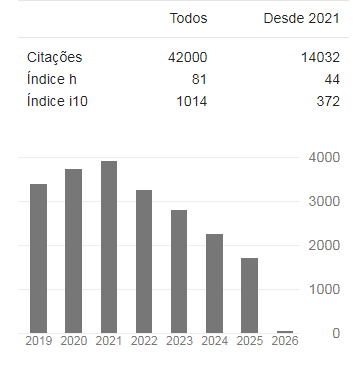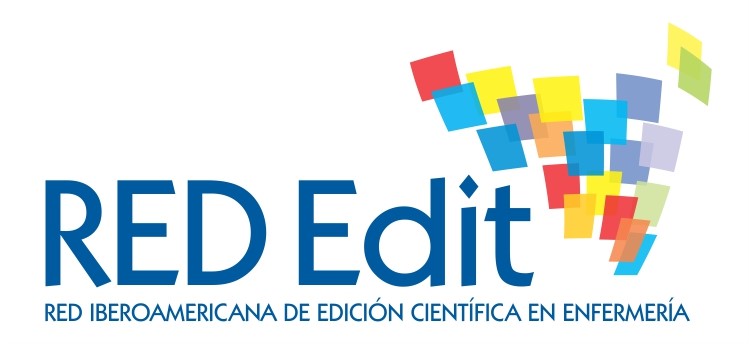Vivências do pai/homem no cuidado ao filho prematuro hospitalizado
DOI:
https://doi.org/10.5935/1415-2762.20180071Palavras-chave:
Relações Pai-Filho, Recém-Nascido Prematuro, Unidades de Terapia Intensiva NeonatalResumo
Objetivo: apreender as representações do pai/homem frente ao cuidado ao filho prematuro e/ou de muito baixo peso hospitalizado, com o apoio de um protocolo de cuidados direcionados para o pai, realizado em uma unidade neonatal de um hospital-escola da região norte do Paraná. Método: trata-se de uma pesquisa de abordagem qualitativa com 15 pais entrevistados entre junho e dezembro de 2016. Para a análise, utilizou-se o referencial teórico das representações sociais, seguindo-se o método do discurso do sujeito coletivo (DSC). Resultados e discussões: após a análise dos dados emergiram cinco ideias centrais: prazer em cuidar; reforço da identidade paterna; superação do medo; apropriação do papel de cuidador; e a importância da permanência na unidade de internação. Considerações finais: é necessário que a figura paterna esteja mais presente durante a internação hospitalar de um filho prematuro e, consequentemente, mais inserida na realização dos cuidados.
Downloads
Referências
Cañas-Lopera EM, Rodríguez-Holguín YA. La experiencia del padre durante la hospitalización de su hijo recién nacido Pretérmino extremo. Aquichan. 2014[citado em 2015 nov. 15];14(3):336-50. Disponível em: http://aquichan.unisabana.edu.co/index.php/aquichan/article/view/2904
Santos RS, Fontes FS. Representação social de pais sobre filho prematuro na Unidade de Terapia Intensiva: uma revisão integrativa. Rev Enferm Profissional. 2014[citado em 2016 ago. 16];1(2):436-46. Disponível em: http://www.seer.unirio.br/index.php/enfermagemprofissional/article/view/3189.
Soares RLSF, Christoffel MM, Rodrigues EC, Machado MED, Cunha AL. Ser pai de recém-nascido prematuro na unidade de terapia intensiva neonatal: da parentalidade a paternidade. Esc Anna Nery Rev Enferm. 2015[citado em 2017 jan. 10];19(3):409-16. Disponível em: http://www.scielo.br/scielo.php?pid=S1414-81452015000300409&script=sci_abstract&tlng=pt.
Araújo NM, Zani AV. Discursos paternos frente ao nascimento e hospitalização do filho prematuro. Rev Enferm UFPE on line. 2015[citado em 2016 dez. 05];2(9):604-9. Disponível em: http://www.revista.ufpe.br/revistaenfermagem/index.php/revista/article/viewArticle/6322.
Fernandes NGV, Silva, EMB. Vivência dos pais durante a hospitalização do recém-nascido prematuro. Referência. 2015[citado em 2016 dez. 16];4(4):107-15. Disponível em: http://www.scielo.mec.pt/scielo.php?script=sci_arttext&pid=S0874-02832015000100012.
Taquette SR, Minayo MCS. Análise de estudos qualitativos conduzidos por médicos publicados em periódicos científicos brasileiros entre 2004 e 2013. Physis. 2016[citado em 10 jul. 2018];26(2):417-34. Disponível em: http://www.scielo.br/pdf/physis/v26n2/0103-7331-physis-26-02-00417.pdf.
Moscovici S. Representações sociais; investigações em psicologia social. 6ª ed. Petrópolis: Vozes; 2009.
Santos GT, Dias JMB. Teoria das representações sociais: uma abordagem sociopsicológica. PRACS. 2015[citado em 2017 jan. 11];8(1):173-87. Disponível em: file:///C:/Users/ADRIANA%20ZANI/Downloads/1416-7098-1-PB.pdf.
Lefevre F, Lefevre AMC. Pesquisa de representação social: um enfoque qualiquantitativo. São Paulo: Liberlivro; 2011.
Figueiredo MZA, Chiari BM, Goulart BNG. Discurso do sujeito coletivo: uma breve introdução à ferramenta de pesquisa qualiquantitativa. Distúrb Comum. 2013[citado em 2016 mar. 22];1(25):129-36. Disponível em: http://revistas.pucsp.br/index.php/dic/article/viewFile/14931/11139.
Feeley N, Waitzer E, Sherrard K, Boisvert L, Zelkowitz. Fathers' perceptions of the barriers and facilitators to their involvement with their newborn hospitalised in the neonatal intensive care unit. J Clin Nurs. 2012[citado em 2016 dez. 16]22:521- 30. Disponível em: https://www.ncbi.nlm.nih.gov/pubmed/23186388.
Jardim DMB, Penna CM. Pai-acompanhante e sua compreensão sobre o processo de nascimento do filho. REME - Rev Min Enferm. 2012[citado em 2017 ago. 12];(16)3:373-81. Disponível em: http://www.reme.org.br/artigo/detalhes/540.
Marksi BSL, Custodio N, Abreu FCP, Melo DF, Wernet M. Alta hospitalar do recém-nascido prematuro: experiência do pai. Rev Bras Enferm. 2016[citado em 2017 fev. 25];2(69):221-8. Disponível em: http://www.scielo.br/scielo.php?script=sci_arttext&pid=S0034-71672016000200221&lng=pt&nrm=iso.
Soares RLSF, Christoffel MM, Rodrigues EC, Machado MED, Cunha AL. Os significados de cuidar do filho pré-termo na visão paterna. Texto Contexto Enferm. 2016[citado em 2017 jan. 25];25(4):1-9. Disponível em: http://www.scielo.br/scielo.php?script=sci_arttext&pid=S0104-07072016000400316&lng=pt&nrm=iso.
Medeiros FB, Piccinini CA. Relação pai-RN no contexto da prematuridade: gestação, internação do RN e terceiro mês após a alta hospitalar. Estud Psicol. 2015[citado em 2017 fev. 17];32(3):475-85. Disponível em: http://dx.doi.org/10.1590/0103-166X2015000300012.
Downloads
Publicado
Edição
Seção
Licença
Copyright (c) 2018 Reme: Revista Mineira de Enfermagem

Este trabalho está licenciado sob uma licença Creative Commons Attribution 4.0 International License.





































